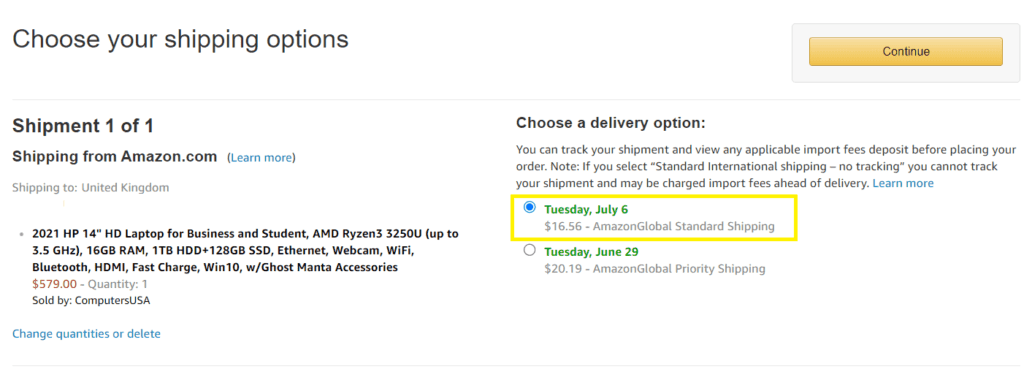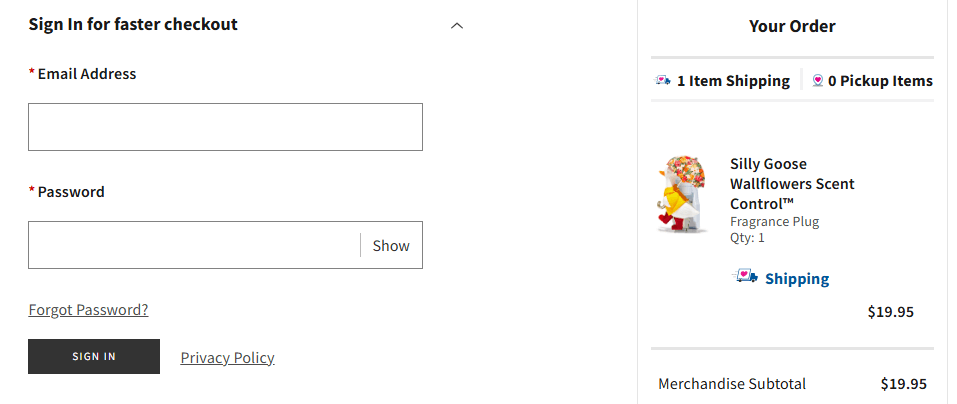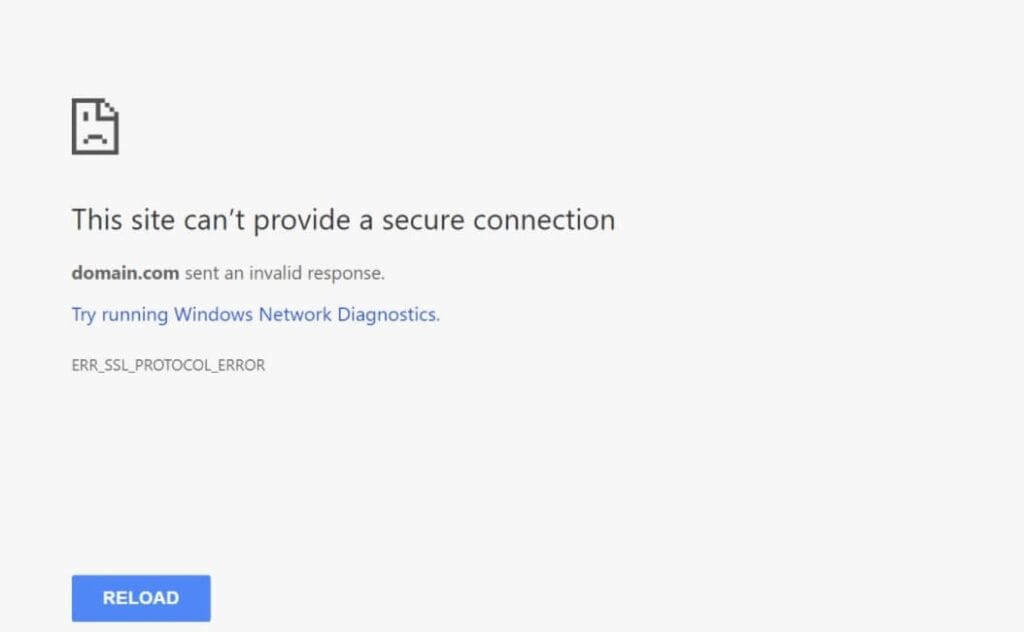Contents
Abandoned shopping carts are a common challenge in online sales. As a matter of fact, here’s a worrying statistic for you:
On average, ecommerce stores lose around 70% of their sales to shopping cart abandonment. That suggests more than half of the visitors who click your affiliate links will drop out before completing their purchase!
In other words, that’s a missed commission on your end! If you want to reduce the abandoned shopping carts rate among your readers, it’s important that you understand why they are dropping out in the first place.
This post will break down common reasons why customers abandon their carts and share practical strategies to help you turn those missed sales into conversions. By addressing these issues, you’ll not only improve the shopping experience for your audience, but also create more opportunities to drive successful conversions – and earn more commissions in the process!
What is Cart Abandonment?
Cart abandonment happens when a customer adds items to their shopping cart but leaves the website without completing their purchase.

This scenario often begins when someone clicks on your affiliate link, visits the merchant’s site, and starts browsing. They may even add items to their cart, generating excitement about a potential commission.
However, if they exit the site without completing their order, you lose the opportunity for a conversion, and the retailer misses out on a sale.
Addressing cart abandonment requires understanding why shoppers leave before purchasing. By identifying these causes, you can create strategies to encourage shoppers to complete their purchases, improving results for both you and the merchants you promote.
5 Reasons for Abandoned shopping carts
Understanding the reasons behind cart abandonment is key to preventing it. Shoppers often abandon shopping carts due to factors like unexpected costs, complex checkout processes, or concerns about payment security.
By identifying these common obstacles, affiliate marketers can take proactive steps to address them and guide customers toward completing their purchases.
Let’s explore the five most common causes of cart abandonment in more detail.
1. Additional Costs
One of the biggest causes of abandoned shopping carts is unexpected costs. Often, the price displayed on the product page isn’t the same as the total on the final checkout page. Many online retailers add unexpected fees, such as:
- Shipping costs
- Payment processing fees
- Taxes
- Currency conversion fees
- Required additional items

This mismatch creates frustration for shoppers. In fact, a recent study revealed that unexpected additional costs are the #1 reason for cart abandonment. Furthermore, 49% of participants admitted they had abandoned an online purchase in the past three months due to these extra fees being too high.
The solution? Jump to How to Prevent Additional Costs from Driving Customers Away
2. A Complicated Checkout Process
Another common reason for abandoned shopping carts is a cumbersome or overly complicated checkout process. Shoppers value convenience – they want to complete their purchases as quickly and efficiently as possible.

Checkout processes that include unnecessary steps, like requiring customers to create an account, can significantly harm your conversion rates. In fact, 24% of customers reported abandoning their carts recently because they were asked to create an account.
The solution? Jump to How to Prevent a Complicated Checkout Experience
3. Slow Shipping
In today’s fast-paced world, rapid delivery isn’t just a perk – it’s often a dealbreaker for online shoppers. Consumers have grown accustomed to services that prioritize speed, with many expecting their orders to arrive within a day or two.
When shipping options fall short of these expectations, it can lead to frustration and hesitation, resulting in abandoned shopping carts. The numbers speak for themselves: approximately 20% of customers have abandoned their checkout process because the expected delivery date was too slow.

This highlights the critical role shipping speed plays in the purchasing decision. For many shoppers, knowing they’ll have to wait several days – or longer – can be enough to walk away, even if they were excited about the product.
The solution? Jump to How to Avoid Slow Shipping-Related Abandonment
4. Security Concerns
Security concerns are a significant reason why customers abandon shopping carts. In fact, 17% of consumers hesitate to share their payment details with websites they don’t trust.
Several red flags can make your website seem less secure, leading to lost sales, including:
- Unfamiliar or unpopular payment gateways
- Outdated website design
- Missing SSL certificate
- Missing images or incomplete pages
- Unfamiliar brand name

In an era of frequent data breaches and online fraud, shoppers are increasingly cautious about where they make transactions, and even a small sign of risk can drive them away.
The solution? Jump to How to Reassure Customers About Security
5. The Customer is Not Yet Ready to Buy
Not every cart abandonment stems from dissatisfaction or confusion – sometimes, it’s simply about timing. Shoppers in the “window shopping” phase are exploring their options, gathering information, or planning for future purchases.
Adding items to their cart can act as a way to bookmark products they’re interested in while they take time to research further or compare prices across different sites.
In other cases, financial constraints play a role. Customers might love what they see but need to wait for payday or a better cash flow before committing to a purchase. For them, the cart serves as a temporary wish list – a reminder of what they plan to buy when they’re ready.
The solution? Jump to How to Reduce Hesitation in Window Shoppers
Affiliate Strategies to Reduce Abandoned Shopping Carts (and Increase Commissions!)
Affiliates play a vital role in addressing shopping cart abandonment by guiding shoppers through the purchase process.
Here are actionable strategies to tackle the common reasons for cart abandonment discussed earlier:
1. How to Prevent Additional Costs from Driving Customers Away: Set Clear Expectations for Total Costs
Being transparent about total costs removes doubt, helping your audience stay focused on completing their purchase.
- Explain Extra Costs Upfront: Include details like shipping fees, taxes, or any other charges in your content. Helping buyers understand these costs early builds trust and sets clear expectations.
- Use Content to Educate Shoppers: Create blog posts or videos explaining why these fees exist and how they’re calculated. This not only informs shoppers but also positions you as a trusted resource.
When customers know exactly what to expect, they’re less likely to abandon their shopping carts, resulting in a better experience for your audience – and more conversions for you.
2. How to Prevent a Complicated Checkout Experience: Highlight Streamlined Checkout Options
Lead your audience toward brands that value simplicity. Your recommendations should point shoppers to stores where the checkout process feels effortless, not frustrating. Whether it’s skipping unnecessary steps or offering faster payment methods, streamlined processes can make all the difference.
- Spotlight Easy Checkout Features: Recommend brands with quick, hassle-free checkouts. Highlight features like “one-click purchase” or “simple payment options.”
- Promote Guest Checkout Options: Mention if a brand offers guest checkout, as many shoppers prefer to avoid account creation during the buying process.
By emphasizing simplicity, affiliates can guide shoppers toward brands that deliver a smooth and enjoyable checkout experience.
Selling Your Own Digital Products? Simplify Your Checkout Process with PrettyPay™
If you’re an affiliate selling your own digital products, ensuring a seamless checkout process is just as critical. PrettyPay™ links make selling digital products simple, secure, and efficient, creating a frictionless experience for your customers.
3. How to Avoid Slow Shipping-Related Abandonment: Promote Fast Shipping Offers
Make speed a selling point in your content. Shoppers appreciate quick delivery, and by highlighting brands with reliable and fast shipping options, you can nudge them toward completing their purchase.
- Promote Speedy Shipping: Highlight brands that offer fast delivery, such as two-day or same-day shipping. These can be strong selling points for time-sensitive buyers.
- Encourage Free or Discounted Shipping: If a brand provides free shipping or affordable expedited options, make it a key feature in your content.
Prioritizing delivery speed shows buyers they won’t be left waiting.
4. How to Reassure Customers About Security: Highlight Trust-Building Features
Guide shoppers toward brands that exude trustworthiness. A sense of security is essential when buyers are deciding whether to share their payment information.
- Mention Trusted Payment Methods: Recommend brands that accept PayPal or other familiar payment gateways, as they’re widely recognized and trusted.
- Showcase Social Proof: Highlight brands with strong customer reviews, testimonials, or security badges to reassure buyers.
- Focus on Return Policies: Promote stores with clear and hassle-free return policies, as these can boost customer confidence.
By promoting companies that prioritize safe transactions and transparency, you help eliminate hesitation.
5. How to Reduce Hesitation in Window Shoppers: Promote Deals That Drive Immediate Action
Turn indecision into action by putting irresistible offers front and center. Buyers are far more likely to complete their purchase when they feel they’re getting something special.
- Highlight Discounts and Limited-Time Offers: Promote exclusive discounts or flash sales to push hesitant buyers toward making a decision.
- Emphasize Value: Showcase the product’s benefits and how it solves a problem for the shopper to make it feel like a must-have.
- Offer Promo Codes: Sharing a promo code can add an extra layer of temptation, encouraging shoppers to buy right away.
While you can’t completely eliminate cart abandonment in these cases, you can reduce it by re-engaging customers and nurturing them until they’re ready to buy. A compelling discount or limited-time deal can provide the perfect push for a completed purchase and scoring a commission.
With these strategies, affiliates can minimize shopping cart abandonment while maximizing their commissions.
Conclusion
Abandoned shopping carts is a challenge, but it’s not an unsolvable one. By understanding why shoppers leave their carts behind and addressing those reasons with targeted strategies, affiliates can make a significant impact on conversions and their own earnings.
From setting clear expectations around costs to promoting secure checkout options and leveraging time-sensitive discounts, the solutions to abandoned shopping carts are straightforward and effective.
By implementing these strategies, you can guide shoppers toward completing their purchases while establishing yourself as a trusted and valuable affiliate partner.
Start applying these tips today to see better conversion rates and higher commissions. Every small change can make a big difference!
Let us know if you have any questions and we will be happy to answer them in the comments section below.
If you liked this article, be sure to follow us on Facebook, Twitter, Pinterest, and LinkedIn! And don’t forget to subscribe in the box below.









Leave a Reply